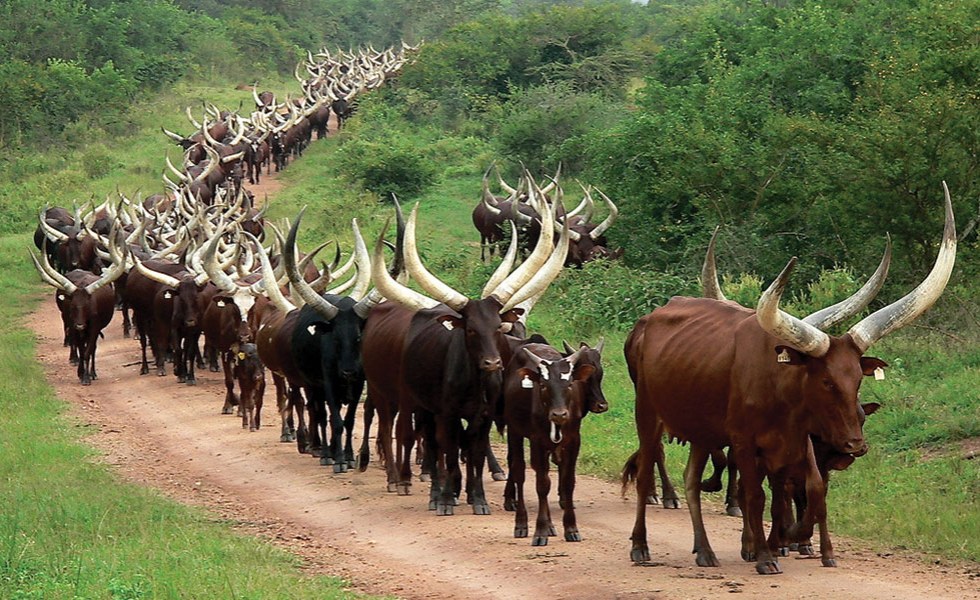
Ethiopia’s livestock export trade has not been supporting the country’s economy in terms of earning foreign exchange like coffee. Despite the abundant resources at hand, the country’s supply of livestock products to the international market is also insignificant. But if it is assisted with an integrated system, the sector has quite a potential to earn additional foreign income.
Among the livestock destination countries, Gulf States take the lion’s share in terms of importing Ethiopian livestock resources. Citing Ramadan fasting season as a peak season for the export of live animals and meat products, traders working in the sector said that in Ramadan fasting season, there was better trade exchange though it has now declined due to the occurrence of coronavirus pandemic.
Alegnta Tamiru who joined the sector as a supplier of livestock to exporters in 2005 said the export activities will be debilitated as the virus expands throughout the world. Even at the national level, the demand for cattle has increased since the end of fasting season but this year’s performance is not encouraging, she said.
Presently, Ethiopia Livestock Traders Association Board member Alegneta Tamiru said that the performance of the sector has failed more than ever before due to the occurrence of corona pandemic and other challenges. Apart from the locking doors of the recipient countries, what makes the task arduous is the closing of Borena and Bale areas in which the livestock trade has been carried out for long due to the pandemic.
In the Ramadan fasting season, there was a huge demand for meat in Oman, Saudi Arabia, and Yemen. Livestock, highly preferred by buyers, are hornless cattle, white and red in colour. That is why we are stuck in Borena and Bale livestock resources which are mostly chosen by buyers. As their skins are easily elastic, these cattle are more desirable for fattening purposes. As they contain extensive meat products and are expensive, Borena and Bale livestock are highly demanded by importers. Other livestock from the SNNP state have also been highly demanded by other buyers. As per the deal made between buyers and sellers, the retailed livestock are transported to purchasers via lorry and ship.
After acquiring a license, Alegnta had been prepared well to export livestock but in the middle the occurrence of COVID-19 pandemic, she faced difficulties in realizing her plan of becoming an exporter.
Previously, she limited herself in supplying fattened livestock to exporters. During the time, she noticed that an exporter is forced to quarantine his cattle in ranches for 28 days after fattening them well. Sometimes, in a bid to get better income from buyers, exporters may stay their livestock for two months. If there is no market, the cattle may stay for long within the ranches.
Though traders do business following a trading system, the price of livestock is not estimated as per their weight of cattle. The trade activities are going on with the absence of these procedures.
If we fatten cattle keeping their growth period, their meat would get better and the demand will also increase, she said adding that the food of these animals is prepared from animal residue. Though they are fattening in such a way, providing for the market, the income earned so far is not benefiting the trader in particular and the country in general.
The major hindrance to getting better income from the livestock sector is illegal trade. The occurrence of corona pandemic made the livestock trade worse than ever before. What is more, there were also difficulties related to neighbouring countries. As a result, the country is not able to increase foreign currency earnings.
The association, which has more than 100 members, made discussions with concerned bodies in order to stop illegal trade of livestock but the solution obtained from the discussion was not translated into action. Other deliberations were also held at the Prime Minister Office which identified the root cause of the problem and provided a remedy for it. Even though countries locked their doors due to coronavirus, preparation to export livestock should not be impeded, said, discussants.
Due to the decline of export performance, traders will face difficult situations unless they are not selling livestock at hands.
Market Survey and Expansion Director under the Ministry of Agriculture Desinet Belay shared Algneta’s idea. Though Ethiopia has huge livestock resources, the country has not been properly benefited out of the sector. “Coronavirus came at a time when we have not solved the challenge the sector faced and the pandemic has aggravated the problem.”
Though the pandemic highly influenced the sector, it has not banned livestock export to various destinations such as Djibouti, Saudi Arabia, Yemen and Somalia.
The nonexistence of modern trade system, absence of qualified livestock, limitation of livestock trade value chain, lack of capacity to provide integrated solutions, disintegrated tasks of stakeholders, the involvement of middle players and illegal traders are some of the bottlenecks of the sector, the director indicated.
Enforcing proclamations, regulations and directives so as to prevent illegal trade exchange should not be left to the Ministry alone, said Desinet added that various stakeholders acting at federal, states levels should discharge their responsibility working hand and glove so as to resolve challenges the sector has been facing. “Through conducting continuous deliberation and evaluation, we identified our limitations to be effective.”
Following the occurrence of the pandemic, the ministry is striving to supply livestock for local consumption through Unions and facilitating conditions to create market linkage. Though there is a decline in foreign trade due to coronavirus, the Ministry has been facilitating means to increase the supply of livestock as per the demand of the market. In terms of gaining foreign currency, the contribution of livestock trade is promising but not satisfactory as crops production, coffee and other sectors.
According to him, four types of animals are identified for export purposes. These are; sheep, goat, ox and camel. For the success of livestock export, the ministry has its own role in terms of increasing the supply of cattle and creating market linkage. Accordingly, it has to offer training so as to raise awareness. It also provides information especially for pastoralists, suppliers, Unions and other stakeholders in areas where there are huge livestock resources such as Borena, West Guji, and Bale in order to balance the trade between supply and demand of livestock.
The Ethiopian Herald Jun 18, 2020
BY GIRMACHEW GASHAW





